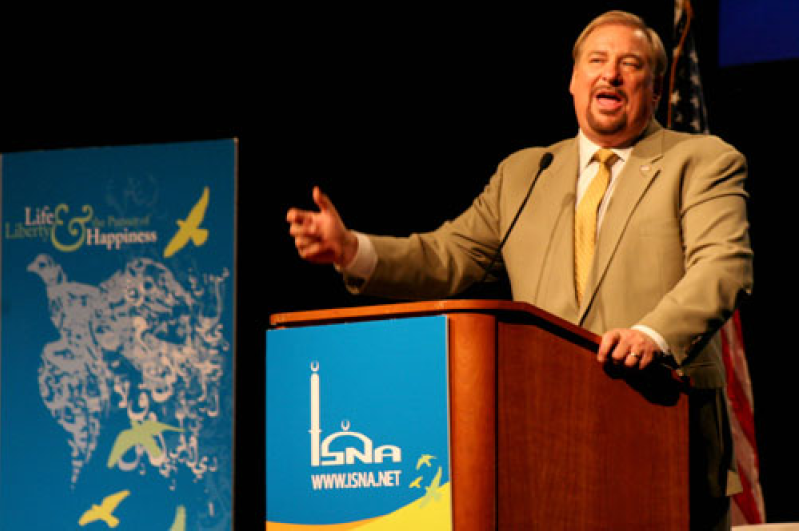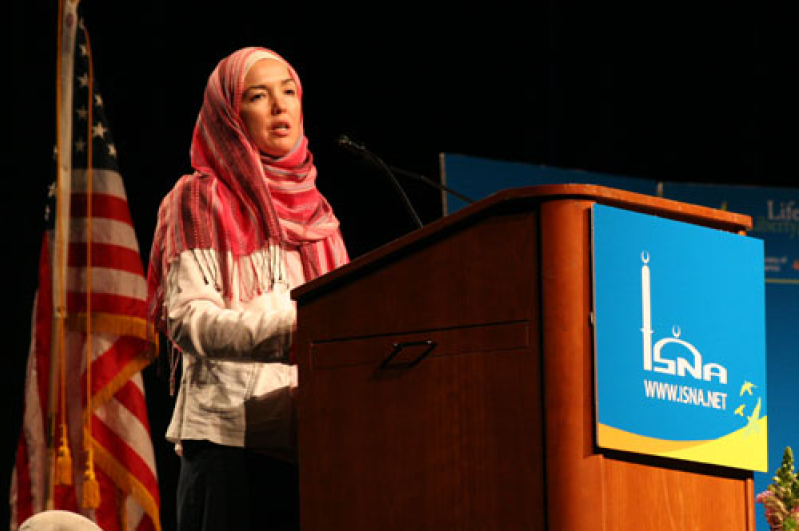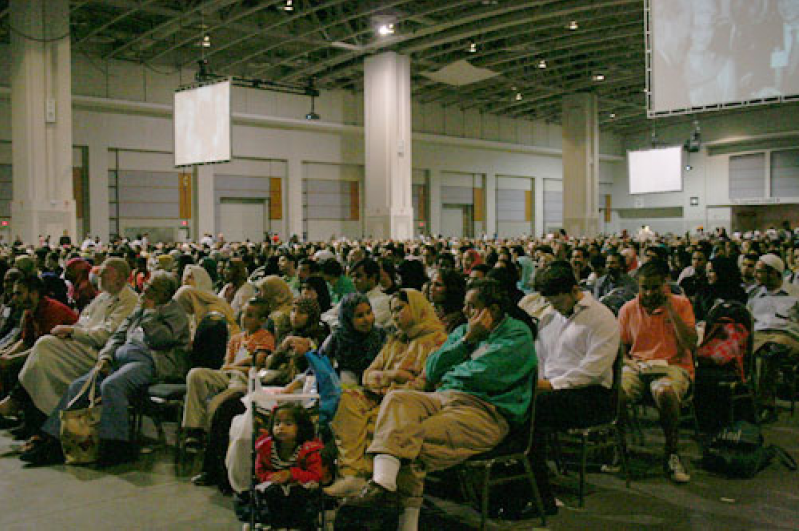


WASHINGTON – Evangelical pastor Rick Warren told a crowd of some 8,000 Muslim Americans that he wasn’t satisfied with just talking to them.
“I will tell you that I am not interested in interfaith dialogue. I am interested in interfaith project. There is a big difference,” said Warren to attendees of the 46th annual Islamic Society of North America (ISNA) convention Saturday evening.
“Talk is very cheap. You can talk and talk and talk and never get anything done. Love is something you do,” Warren maintained. “It is something we do together.”
Warren, the founding pastor of Saddleback Community Church in Lake Forest, Calif., was the only Christian invited to speak at Saturday’s evening main session, which organizers described as the “cornerstone” of the convention.
Warren was warmly received by the Muslim audience, many of which could be seen snapping photos of the popular evangelical pastor, taking notes of what he said, or breaking into applause whenever he said something to their liking.
Before Warren stepped on stage, Dr. Ingrid Mattson, president of the Islamic Society of North America, gave a flattering introduction for the megachurch preacher, highlighting how he reverse tithes, giving away 90 percent of his income and living off 10 percent.
The audience, who had been pressed to donate the whole night by the group’s fundraising committee, broke out into applause.
“I am very much an admirer of his, Pastor Warren’s organization and as someone who has increased his interfaith outreach in the last number of years,” said Mattson, a Canadian-born convert to Islam from Catholicism.
But despite the praises, Warren maintained his religious differences with the Muslim crowd and encouraged audience members to also not compromise their conviction.
“You know as an evangelical pastor, my deepest faith is in Jesus Christ,” Warren stated. “But you also need to know that I am committed not just to what I call the good news, but I am committed to the common good.”
He called on the members of the two largest faith communities in the world to not only figure out how to live in peace and harmony with each other, but also to find a way to work together for the greater good without compromising each group’s convictions.
In his speech, Warren suggested that Muslims and Christians work together to challenge the mischaracterizations and stereotypes in the media about each other’s faith; to restore civility in America by showing that people can “disagree without being disagreeable;” and to promote peace and freedom, particularly freedom of speech and religion, together.
“Let me just say this to those of you who have been in America for many generations now,” Warren said, noting that they were gathered on the Fourth of July, America’s Independence Day. “Part of your responsibility is to help the newcomers learn what it means to be Americans.
“America is a country not built on race, not built on a creed, but built on an idea – liberty and justice for all and freedom for all,” Warren said as he called for citizen education.
He also gave a practical example of how Muslims and Christians can work together by pointing to his PEACE plan, a massive effort to mobilize one billion Christians to combat the five biggest problems in the world – spiritual emptiness, corrupt leadership, extreme poverty, pandemic diseases, and illiteracy and lack of education.
In a western province in Rwanda, the PEACE plan has been implemented where imams and pastors are invited to attend healthcare training sessions. Those religious leader in turn help mobilize their congregants to also receive healthcare training. By the end of this year, Warren said, a province where there was only one doctor for 750,000 people will have over 1,500 trained healthcare workers.
The acronym PEACE stands for promote reconciliation, equip servant leaders, assist the poor, care for the sick, and educate the next generation.
Warren acknowledged that it will not be easy to work together because of the criticism from conservatives from both religions, but he urged both groups to work together for the common good.
“You know what I discovered is when you walk down the middle of the road you get hit coming and going,” the evangelical pastor said. “Actually, it is easier to be an extremist of any kind because then you only have one group of people mad at you. But if you actually try to build relationships, like invite an evangelical pastor to your gathering, you’ll get criticize for it, so will I. But that is not what matters,” he said.
Warren was among a number of Christian leaders who were invited to participate in the ISNA convention. Other Christian leaders were invited to speak at the smaller sessions during the July 3-6 event.
ISNA is an umbrella organization for Muslim groups in North America. Its annual conventions usually draw tens of thousands of people. The hall containing the Saturday session with Rick Warren was filled to capacity.







